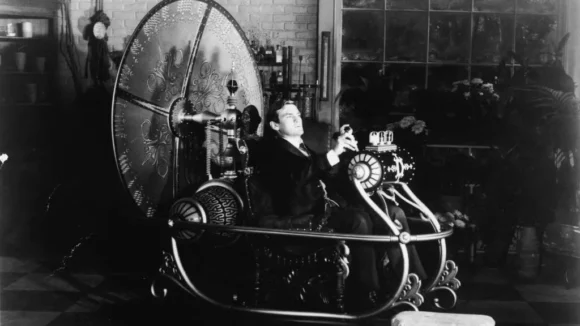Reading Georgi Gospodinov’s Time Shelter for The Times, 30 April 2022
Bulgaria’s best known contemporary novelist gets into a tremendous historical tangle in Time Shelter, the tale of how a fictional Georgi Gospodinov (let’s call him GG) helps create the world’s first “clinic for the past”. Here, past ages (1980s Soviet Sofia, for example) are recreated to relieve an elderly clientele from the symptoms of senile dementia.
The bald premise here isn’t as fanciful as it might sound. I assume that while writing, Gospodinov was all over news stories about the Alexa nursing home in Dresden, which in 2017 recreated spaces from communist-era East Germany as a form of therapy.
From this shred of clinical fact, GG’s mind, like Stephen Leacock’s Lord Ronald, rides off in all directions.
GG’s boss at the clinic is his lugubrious time-jumping alter-ego Gaustine (who’s cropped up before, most memorably in Gospodinov’s 2011 novel The Physics of Sorrow and in an eponymous story in his 2007 collection And Other Stories). Gaustine hires GG to run the clinic; GG’s own father becomes a client.
Soon, carers and hangers-on are hankering to stay at the clinic, and Gaustine dreams up grand plans indeed — to build time clinics in every town; to build whole towns set in the past; ultimately, to induce whole nations to reenact their favourite historical eras! “The more a society forgets,” Gaustine observes, “the more someone produces, sells, and fills the freed-up niches with ersatz-memory… The past made from light materials, plastic memory as if spit out by a 3-D printer.”
This is a book about memory: how it fades, and how it is restored, even reinvented, in the imaginations of addled individuals, and in the civic discourse of fractious states.
As the clinic’s grandest schemes bear fruit, there’s political satire of the slapstick kind, as when “one day the president of a Central European country went to work in the national costume. Leather boots, tight pants, an embroidered vest, a small black bow above a white shirt, and a black bowler hat with a red geranium.” The scene in which a three-square-kilometre Bulgarian flag is dropped over the crowds in Sofia’s oldest park, the Borisova Gradina, is a fine piece of comic invention.
As the dream of European unity frays, and each European country embraces what it imagines (and votes) to be its best self, Gospodinov’s notes on national character and historical determinism threaten to swallow the book. But in a development that the reader will welcome (though it’s bad news all the way for GG) our narrator flees time-torn Bulgaria (torn between complacent Soviet nerds and keen reenactors of an unsuccessful national uprising in 1876), finds himself a cheap cell in a Franciscan monastery outside Zurich, and comes face to face with his own burgeoning dementia. “The great leaving is upon you,” GG announces, sliding from first person into second, from second into third, as his mind comes apart.
Gospodinov chillingly describes the process of mental ageing: “Long, lonely manoeuvres, waiting, more like trench warfare, lying in wait, hiding out, quick sorties, prowling the battlefield ‘between the clock and the bed,’ as one of the elderly Munch’s final self-portraits is called.”
Of course, this passage would have been ten times more chilling without that artistic reference tacked on the end. So what, exactly, is Gospodinov trying to do?
His story is strong enough — the tale of an innocent caught up in a compelling aquaintance’s hare-brained scheme. But Gospodinov is one of those writers who thinks novels can, and perhaps should, contain more than just a story. Notes, for example. Political observations. Passages of philosophy. Diary entries. Quotations.
GG comes back again and again to Thomas Mann’s polyphonic novel The Magic Mountain, but he could just as easily have cited Robert Musil, or James Joyce, or indeed Milan Kundera, whose mash-ups of story, essay and memoir (sometimes mashed even further by poor translation) bowled readers over in the 1980s.
Can novels really hold so much? Gospodinov risks a mischievous line or two about what a really brave, true, “inconsolable” novel would look like: “one in which all stories, the happened and the unhappened, float around us in the primordial chaos, shouting and whispering, begging and sniggering, meeting and passing one another by in the darkness.”
Not like a novel at all, then.
The risk with a project like this is that it slips fiction’s tracks and becomes nothing more than an overlong London Review of Books article, a boutique window displaying Gospodinov’s cultural capital: “Ooh! Look! Edvard Munch! And over there — Primo Levi!” A trove for quotation-hunters.
Happily for the book — not at all happily for Europe — Vladimir Putin’s rape of Ukraine has saved Time Shelter from this hostile reading. In its garish light, Gospodinov’s fanciful and rambling meditation on midlife crisis, crumbling memory and historical reenactment is proving psychologically astute and shockingly prescient.
Gospodinov’s Europe — complacent, sentimental and underconfident — is pretty much exactly the Europe Putin imagines he’s gone to war with. Motley, cacophonous, and speciously postmodern, it’s also the false future from which — and with a terribly urgency — we know we must awake.

